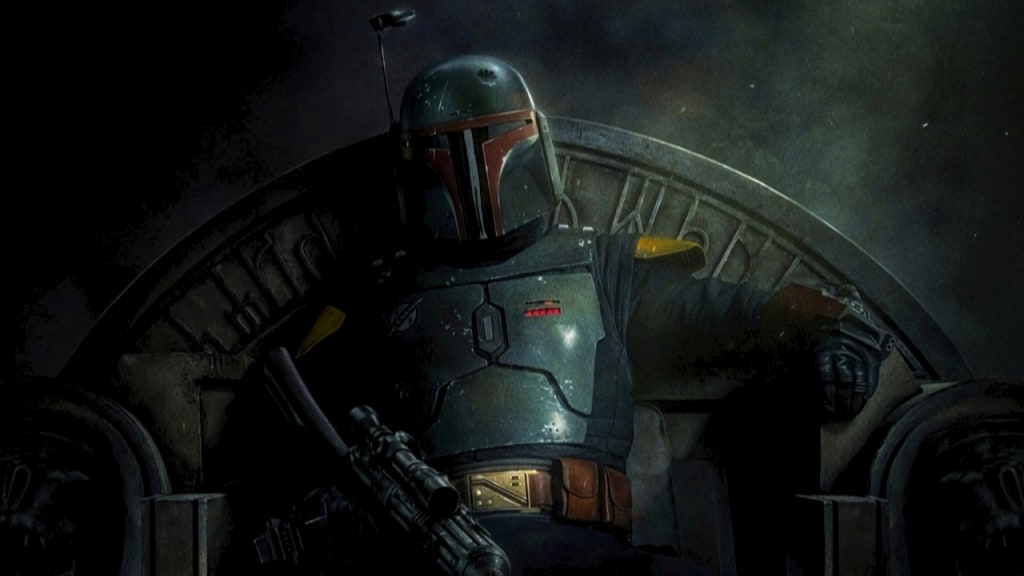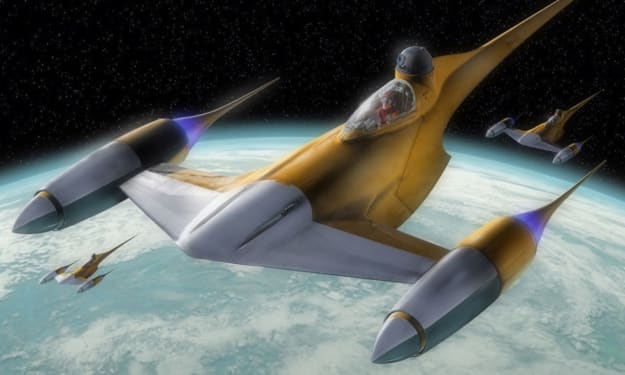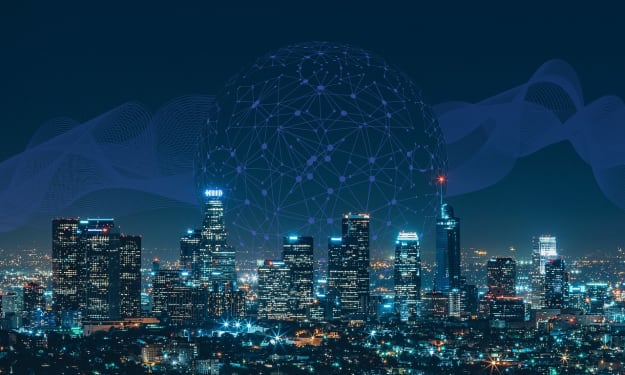Why 'The Book Of Boba Fett' Was Never Going To Please Everybody
The Mask Is Off Now

I am surprised by the reception The Book of Boba Fett has received.
I have been a critic of Disney Star Wars but have enjoyed the series. I know others who have been equally disparaging of the Disney Star Wars movies but have enjoyed The Book of Boba Fett. Then there are those who have disliked the series, while others have flagellated it. Social media (particularly Twitter) is awash with condemnation.
Over on IMDb, The Book of Boba Fett currently has a 7.7 rating. IMDb can be misleading, though, in relation to pop culture franchises. Unthinking support, as in fan bases that love everything regardless, can misleadingly inflate ratings. Over on Rotten Tomatoes, the critics’ rating of The Book of Boba Fett averages out to 81%, while the audience score sits at 61%. However, this is typical of scores at Rotten Tomatoes, which often finds audiences at odds with reviewers, and usually with the audiences averaging out to the lesser score.
RELATED: Odd 'Star Wars' Theory Could Explain Boba's Apparent Weakness In First Few Episodes
The Book of Boba Fett was always going to invite mixed reactions. The sequel trilogy should have been a cautionary tale. Fans are not only devoted to their original trilogy characters but protective of them and how they are treated. As far as some are concerned, the sequels vandalized their beloved characters. The Mandalorian avoided this because it introduced a character who carried neither baggage nor allegiances. He was virginal. There were no other frames of reference that could prejudice expectations. It was working with this blank slate that allowed Jon Favreau and company to do as they liked in regards to the narrative.
Despite enjoying just two brief appearances and six lines of dialogue in the original trilogy, Boba Fett has a zealous following. Even George Lucas was surprised by Boba Fett’s popularity and admitted they would have given him a more fitting send-off in Return of the Jedi if he could predict how revered the character would become.
So what happened with Boba Fett making his way to television?
A Snapshot In Time
The original trilogy presents Boba Fett as a wily and mysterious bounty hunter. We do not know anything about him. While the prequels told us that he is a clone, they did not fill in the years between his childhood (after losing his father, Jango) and his first appearance in The Empire Strikes Back. Effectively, not much has changed about him.
Many wanted the series to portray the exact same character – this ruthless, cunning, merciless, mysterious, proficient bounty hunter. Although, the reality is that while Boba Fett is an exemplar of all those traits in The Empire Strikes Back, he is inept in Return of Jedi, and his demise borders on slapstick.
The Book of Boba Fett has stripped Boba Fett of all that and presented him as a flawed and struggling man. He is not a legend. He is just a guy under his helmet. It is tantamount to peeking behind the curtain in The Wizard of Oz to find there is no Wizard after all, but just an old man with some parlor tricks. Audiences who dislike The Book of Boba Fett feel robbed. This is not the Boba Fett they were looking for.
Some have pointed to The Mandalorian and claimed that Boba Fett should have been written like Din Djarin. However, if that had been the case I am sure there would have been criticisms of Boba Fett sparing Grogu, bonding with Grogu as a surrogate parent, and befriending a range of other characters throughout the series.
The Boba Fett They Gave Us
Every property that revisits characters after a lengthy interim will always face the challenge of extrapolating a future that audiences will believe, accept, and invest in. This was the major criticism of the sequel trilogy. All our legacy characters had gone nowhere. Han and Leia had split up. Han was back to just being a mercenary. Leia had to form the Resistance because the New Republic would not take her warnings seriously. Luke had grown embittered and retreated to a secret location to die.
Fans hated it. These were not the futures espoused in third-party material that has since been de-canonized, or what they have imagined. It was incongruent with their own expectations. There was an immediate rebellion against these circumstances. Other franchises have faced similar issues.
Cobra Kai has done a wonderful job repeatedly of extrapolating futures that feel genuine and organic for characters from the movies. Daniel LaRusso owns a dealership? Johnny Lawrence is divorced and struggling to make ends meet? We buy into all this. It might not be what we imagined, but we totally buy into who all these characters have become because they represent growth (good or bad) for these characters.
Some franchises do not understand this. They invert our characters, as they did with Luke Skywalker in The Last Jedi. Another good example is Jean-Luc Picard in Star Trek: Picard. These characters have not grown into the older versions we meet. We are not given any evidence as to how this could have happened. They have simply been changed because of one traumatic life-altering event. Luke sensed the darkness in Ben Solo. Captain Picard was affronted by Starfleet’s refusal to help the Romulans, etc. That is it. Those are the motivation and justification for why our characters have been polarized. Then the whole character arc became about resetting them to the people we expected.
Lots of fans have refused to buy into Boba Fett’s circumstances: a bounty hunter who has spurned his former life to become a criminal kingpin. He talks too much. He takes off his helmet. He does not seem particularly competent. Is this really who we expected Boba Fett to be? Has he grown into this man? Or has he just been changed?
The Sequel Trilogy
It would be easy to say these movies polarized audiences, but they actually did quite a bit more than that. They antagonized a contingent of the fan base. Some may claim that it is just a small but vocal niche of hardcore fans, but you just have to follow the systematic decline in the box office to see it was bigger than that. It was big enough that Disney retreated from the cinematic universe.
Many of these fans have been scarred. They treat every property now with suspicion and condemn it automatically. They will not give it a chance to hurt them. It is easier to smash it first.
This is not to dismiss any criticisms they have. The Book of Boba Fett is not perfect. But some of their criticisms can be selective, or qualified selectively. For example, Boba Fett is too nice; he let Black Krranstan go and is not the killer he should be. However, this criticism ignores the fact that Boba Fett executed Bib Fortuna and massacred the bikers.
Fans will flock to and exalt the things they do not like as examples of why The Book of Boba Fett does not work. This happens because (as far as they are concerned) the sequel trilogy systematically programmed and acclimated them to the reality that the characters they loved would be trashed.
Conclusion
Obviously, there are other factors that can be considered, such as structure, story, plotting, acting, and all the things that are built on those cornerstones. While there may be legitimate queries, before any of those things were cited or explored, there was a sense of that emotional and spiritual betrayal. This is not the Boba Fett that those fans wanted. Once that door is opened, then every other criticism, both constructive and facetious, is ushered through with great fanfare and showers of confetti.
Disney should be mindful of how fans are reacting. This is a group who have been regularly disappointed with (as far as they are concerned) the prequels and the sequels. They are cynical about Disney’s brand of Star Wars. It is always going to struggle with them.
I like The Book of Boba Fett, and I have been as ardent a critic as anybody of the sequel trilogy. It is not perfect, but I have looked at it as a character-driven story about a man who had an almighty fall (being cast into the Sarlacc pit), emerged (and is effectively reborn), and decided his life has to take a new course. He is tired of being the muscle. He now wants to become management. It is the sort of journey consistent with movies set in criminal underworlds.
Is he the Boba Fett from the original trilogy? No. But that Boba Fett gave us nothing intellectually, spiritually, or emotionally. That is not to condemn him as a bad character. He had a role to play and he played it. The writers had to create somebody badass enough to catch Han Solo. We did not learn about his motivations or his hopes or his fears. He was an avatar for the man, and it is that avatar that fans grew devoted to.
But the mask is off now. And we get to see the man instead.
READ NEXT: 'The Book Of Boba Fett' Star Talks About On Set Environment
Written By LeKoupa
Syndicated From Culture Slate
About the Creator
Enjoyed the story? Support the Creator.
Subscribe for free to receive all their stories in your feed. You could also pledge your support or give them a one-off tip, letting them know you appreciate their work.






Comments
There are no comments for this story
Be the first to respond and start the conversation.